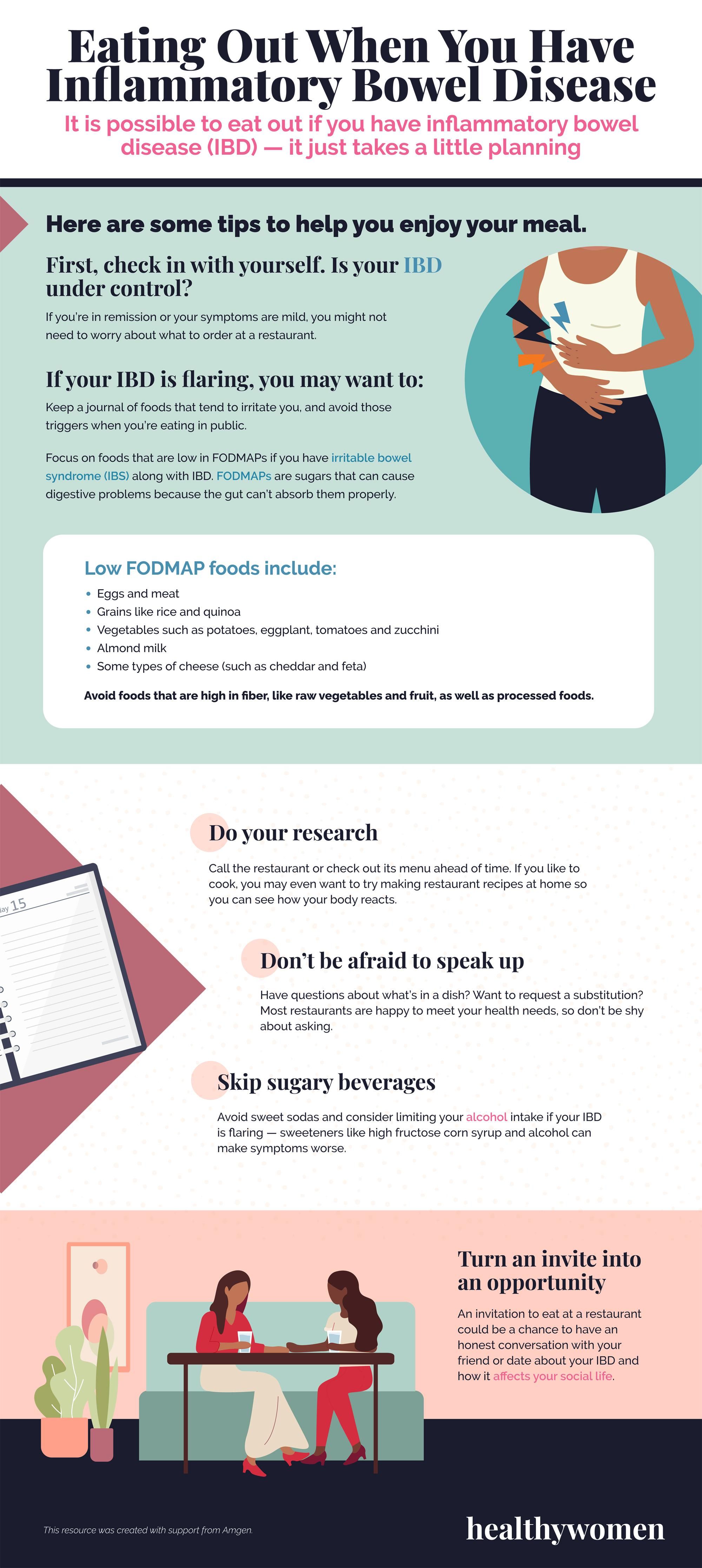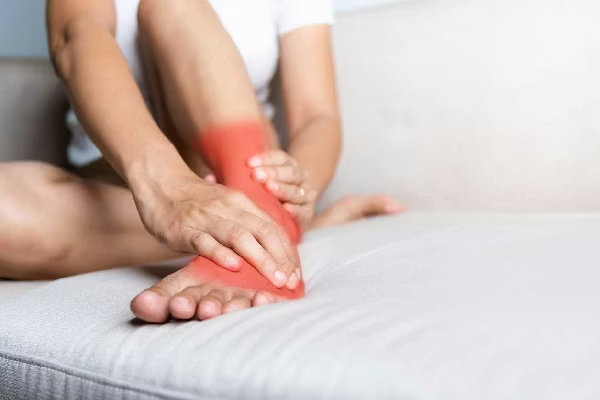Designed by Megan Schofield
If you have IBD, you can still enjoy eating out. It just takes a little preparation. Here are some tips to help you enjoy your meal.
First, check in with yourself. Is your IBD under control?
If you’re in remission or your symptoms are mild, you might not need to worry about what to order at a restaurant.
If your IBD is flaring, you may want to:
- Keep a journal of foods that tend to irritate you, and avoid those triggers when you’re eating in public.
- Focus on foods that are low in FODMAPs if you have irritable bowel syndrome (IBS) along with IBD. FODMAPs are sugars that can cause digestive problems because the gut can’t absorb them properly.
Low FODMAP foods include:
- Eggs and meat
- Grains like rice and quinoa
- Vegetables such as potatoes, eggplant, tomatoes and zucchini
- Almond milk
- Some types of cheese (such as cheddar and feta)
- Avoid foods that are high in fiber, like raw vegetables and fruit, as well as processed foods.
Do your research
Call the restaurant or check out its menu ahead of time. If you like to cook, you may even want to try making restaurant recipes at home so you can see how your body reacts.
Don’t be afraid to speak up
Have questions about what’s in a dish? Want to request a substitution? Most restaurants are happy to meet your health needs, so don’t be shy about asking.
Skip sugary beverages
Avoid sweet sodas and consider limiting your alcohol intake if your IBD is flaring — sweeteners like high fructose corn syrup and alcohol can make symptoms worse.
Turn an invite into an opportunity
An invitation to eat at a restaurant could be a chance to have an honest conversation with your friend or date about your IBD and how it affects your social life.
This resource was created with support from Amgen.
- How to Sleep Well With IBD - HealthyWomen ›
- Fast Facts: What You Need to Know About Irritable Bowel Syndrome ... ›
- Irritable Bowel Syndrome (IBS) - HealthyWomen ›
- How to Prevent Inflammatory Bowel Disease Symptoms from ... ›
- App Aims to Make Living With IBD Easier - HealthyWomen ›
- Emotional Effects of Life With Inflammatory Bowel Disease - HealthyWomen ›
- What You Need to Know About Inflammatory Bowel Disease - HealthyWomen ›
- Facts About the Low FODMAP Diet - HealthyWomen ›
- How to Support Someone With Inflammatory Bowel Disease (IBD) - HealthyWomen ›








